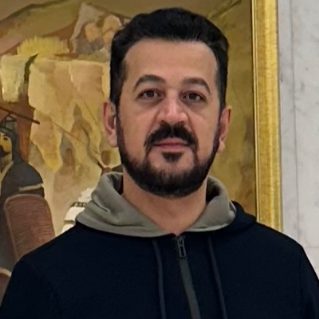Guest Editors
Prof. Mariacristina Roscia
Email: cristina.roscia@unibg.it
Affiliation: Department of Engineering and Science Applied, University of Bergamo, Viale Pasubio 7, Bergamo, 20144, Italy
Homepage:
Research Interests: Energy; Smart City; Renewable Energy Sources; Smart Grid; Mobility

Assoc. Prof. Korhan Kayisli
Email: korhankayisli@gmail.com
Affiliation: Department of Research Information System, Gazi University, Emniyet, Bandırma Cad, No:6/1, Ankara, 06560, Turkey
Homepage:
Research Interests: Engineering Multidisciplinary, Engineering Electrical & Electronic, Robotics and Mechatronics Systems, Artificial Intelligence, Computer Learning and Pattern Recognition, Renewable energy, Power Electronics, Power Converters, Power Quality, Engineering and Technology

Summary
Europe has embarked on an ambitious path that has as its objective sustainable development, a development model that guarantees global sustainability and maintains Europe's current levels of well-being and environmental quality, but also prospects and roles that are at least supporting roles in the near future.
A city is smart (Nijkamp) when investments in human and social capital, traditional (transport) and modern (ICT) communication infrastructures fuel sustainable economic growth and a high quality of life, with wise management of natural resources, using participatory governance.
Smart City refers to a holistic vision integrated with the role of citizens with levels of integration and interest to participate in smart governance. Through information technology, monitoring and control in everyday life, the most modern transport systems, infrastructures, renewable and efficient energy, every city can be made a smart city.
However, one in five people in the world does not have access to electricity to meet basic needs such as cooking, lighting and heating their homes. Energy poverty is one of the worst forms of poverty, as it hinders economic development, makes education difficult and limits the means available to improve one's living conditions. Energy poverty is the basis of poverty: over 95% of people without access to modern electricity networks live in sub-Saharan Africa and rural Asia, a figure that highlights how the global distribution of energy poverty almost mirrors the geography of overall poverty. Access to electricity has increased significantly in recent years, but a large part of the world's population still does not have it.
The scientific community has the opportunity to reverse this trend through careful and targeted research to achieve the reduction of energy poverty and the sustainability of cities. The goal of ensuring clean and sustainable energy for all is therefore a common good and is one of the great global challenges of our time. The aim of this special issue is to move the scientific community towards research that helps reduce energy poverty, through the conscious use of technology. Every researcher is called to participate in this challenge with his or her own contribution.
Topics of interest of this Special Issue include, but are not limited to:
· Sustainable development objectives and their implications
· Concept of smart cities: elements like human & social capital, infrastructure investments
· Technologies enabling the transformation of cities into smart cities
· Global energy poverty: scale, distribution, and its impact on basic needs
· Scientific community's role in reducing energy poverty and promoting city sustainability
· Global challenge of ensuring clean and sustainable energy for all
Keywords
Energy; Smart City; Mobility; Energy poverty; Sustainable development goals